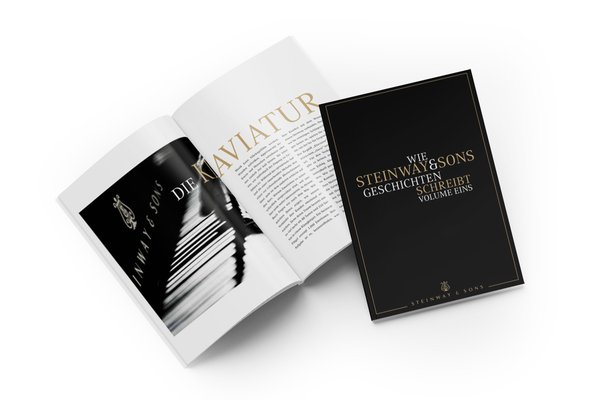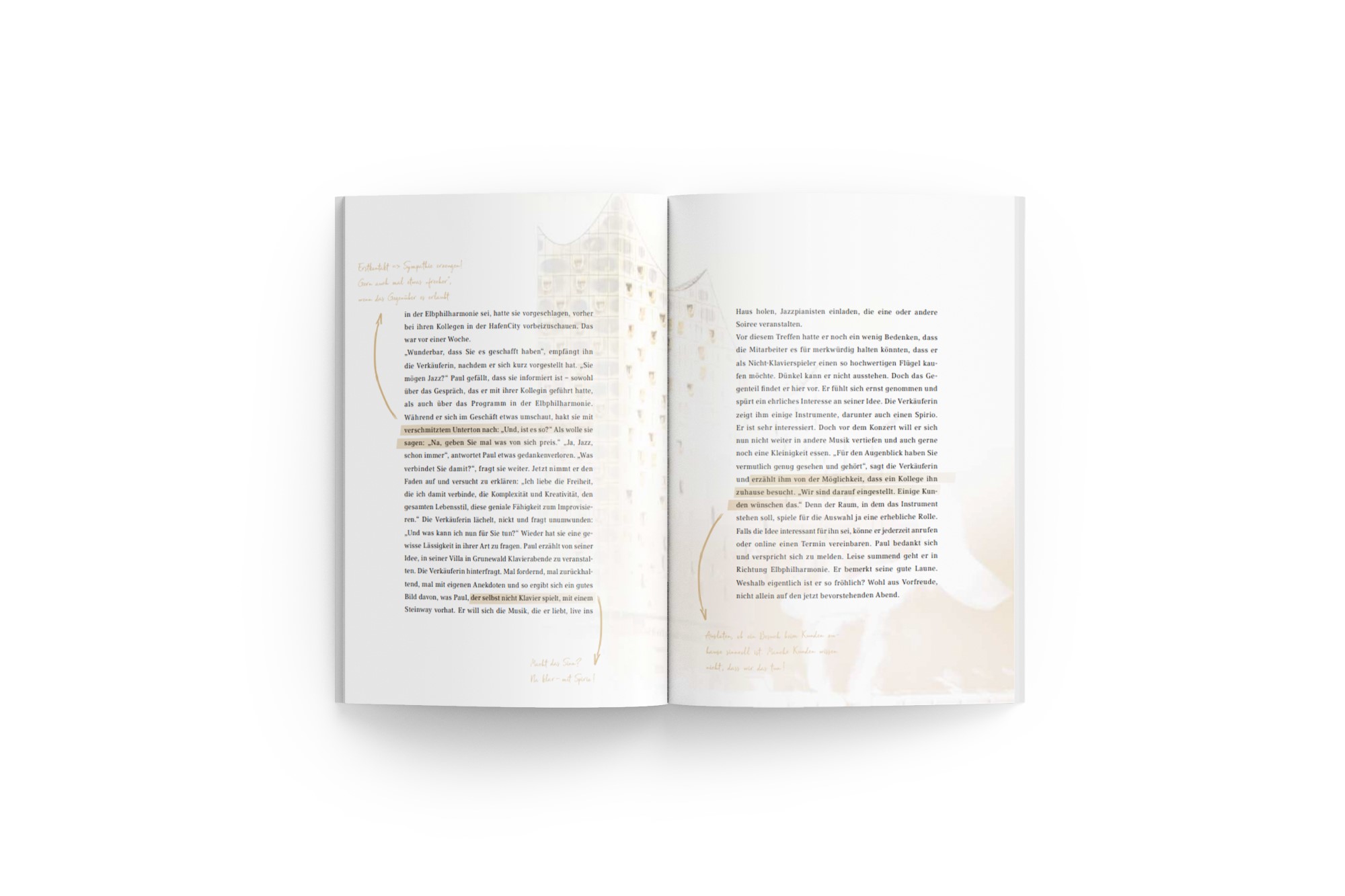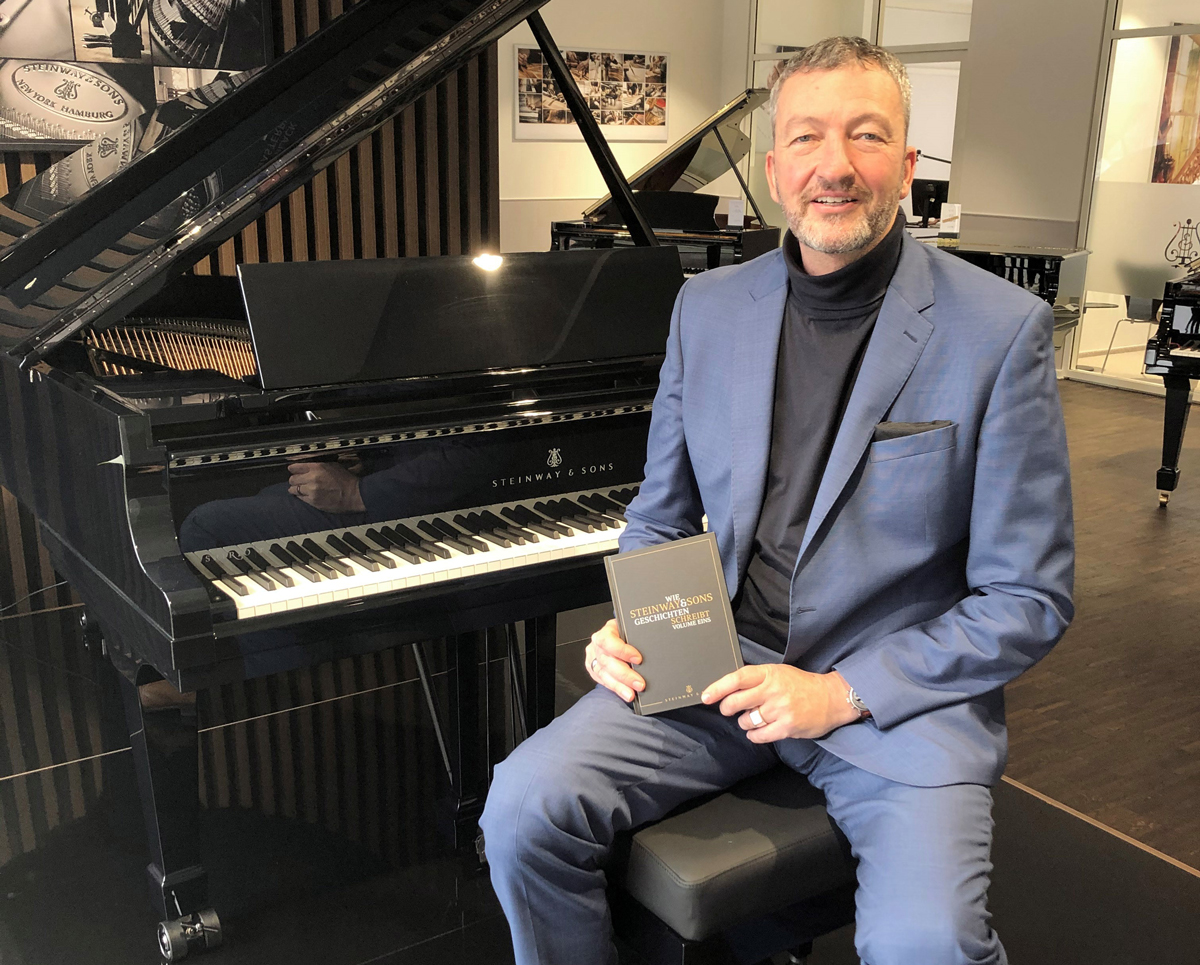– Together with the employees of Steinway & Sons, Pawlik Consultants has written a book entitled “The Keyboard”.
“Stories stick better.”
For us, “making it happen” means helping you turn your company goals into results. We transform organizations into coherent systems and develop the personal potential of employees. We use the latest scientific research results as a basis for this.
For us, “making it happen” means helping you turn your company goals into results. We transform organizations into coherent systems and develop the personal potential of employees. We use the latest scientific research results as a basis for this.
For the customers of Steinway & Sons, it's about dreams and great values. For most people, buying a first-class grand or upright piano is a decision of a lifetime. “The sales process requires a great deal of empathy, but also stamina on the part of the sales department” emphasized Roman Hohaus, Senior Consultant at Pawlik Consultants. But how exactly do you achieve that? How do you find the right tone for each customer?
Together with the employees of Steinway & Sons, Pawlik Consultants has written a book entitled “The Keyboard”. It describes the wishes and expectations, but also the insecurities, of five different types of customers and explains what the employees can look out for to make customer consultations even more successful. Printed notes point out key moments in a conversation. They consist of Roman Hohaus' sales notes and are integrated into the five stories.
We spoke to Dr. Cliff Rehr, Director of Human Resources EMEA at Steinway & Sons, who is responsible for the project, about the background of the book “The Keyboard”.
What is the idea behind this book?
In my opinion, sales training cannot be conducted according to a simple “pattern” because the needs and motives of the customers, as well as the customers’ particular situations, are too innumerable to establish such a pattern. Positive experiences and examples help to convey the complexity in a way that is easily understandable.
Stories like the ones in this book simply “stick” better than theories that our salespeople have heard many times before. There are endless wonderful stories about the sale of a piano or grand piano that the customer has thought about very thoroughly. Many of these stories are about fulfilling a lifelong dream of owning a Steinway.
How did the title of “The Keyboard” come about?
The analogy to the piano itself helped foster the idea of casting the variety of tones and craftsmanship into a concept. With 88 keys, the keyboard shows the range of tones that we also see in the customer relationship. We want to use it to generate a basis that gives our sales personnel, but also everyone else who encounters it, an impetus and opportunity for individual improvement. Be it during the initial contact, the commencement, or the conclusion of the sale.
How is the book being received by your employees?
Generally very well. It is compact, easy to use and leaves room for your own notes. It is certainly a bit unusual for the sales personnel, but it is a symbol of a new era that we are ushering in. Steinway's tradition is also in innovation, and our founder and his sons have shown us that. We are called upon to continue on this “Stein-Way”!
What do you personally like best about the book?
That it is never finished and that it is meant to encourage the sharing of stories and lessons learned. It is handy and has its own radiance through its many positive examples. It suggests in a positive and non-classical way how to walk through a successful sales process, and it conveys how diverse customers and situations are. Happy customer – happy life!
For us, “making it happen” means helping you turn your company goals into results. We transform organizations into coherent systems and develop the personal potential of employees. We use the latest scientific research results as a basis for this.
Each year, we invest five percent of our revenue to learn about learning. We are happy for our clients, partners, and other interested persons to share in our findings.
We would therefore like to ask for your consent to us contacting you with up-to-date information about our services and specialties.


